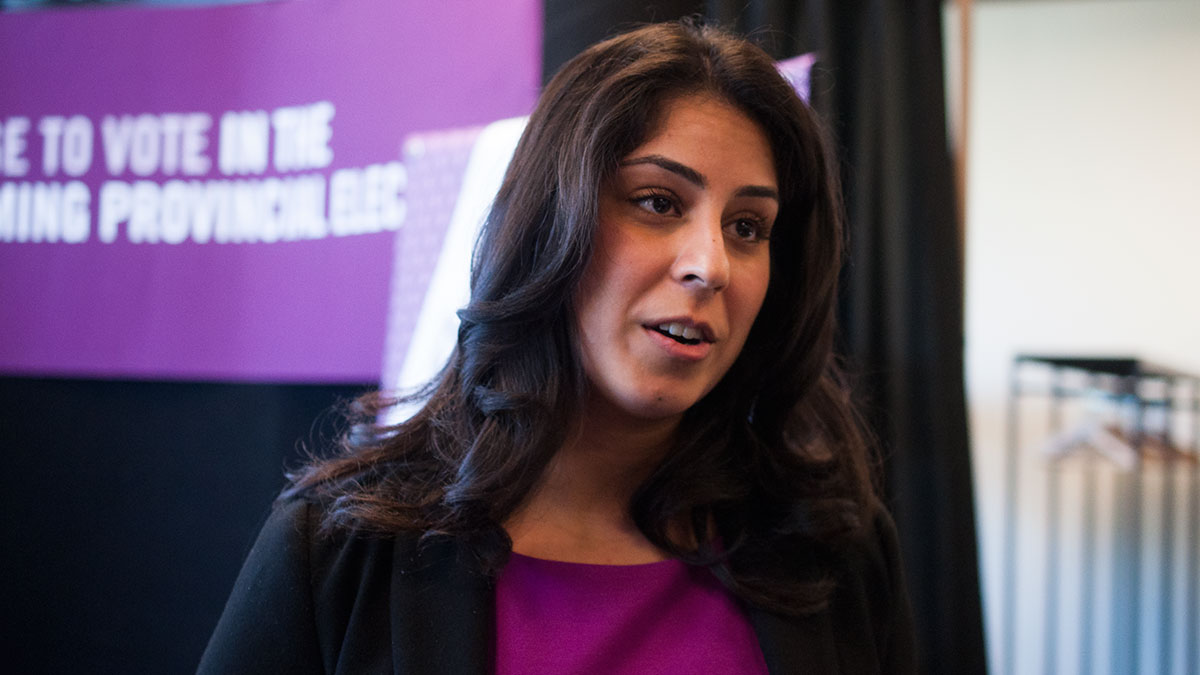CAUS launches “Get out the Vote” campaign
 Richard Catangay-Liew
Richard Catangay-LiewAlthough most students will be tucked away in libraries cramming for final exams and writing papers, Navneet Khinda is reminding them to vote in next month’s provincial election.
The Students’ Union Vice-President (External) officially launched the Council of Alberta University Students (CAUS) “Get out the Vote” campaign Thursday afternoon at the Myer Horowitz foyer in an effort to get students down to polling stations on May 5.
Khinda said CAUS’ message is simple.
“We will ensure students know how to vote, where to vote, when to vote and why,” Khinda said.
Students’ Association of MacEwan University Cameron McCoy, who is also Vice-Chair of CAUS, said the campaign isn’t meant to persuade students to vote for one party over another, but to encourage them to vote.
“The reality is that an election is coming, and it’s our job to make sure students know about it at the end of the day,” McCoy said.
The “Get out the Vote” campaign will focus on peer-to-peer connections with volunteers approaching students and encourage them to pledge to vote. If students pledge, they will be reminded on advance polling dates and on May 5. The peer-to-peer connection should prove more engaging than an online campaign through social media, Khinda said.
CAUS represents the 100,000 students who attend the U of A, MacEwan University, University of Calgary, University of Lethbridge and Mount Royal University.
While the 18 to 24 age demographic is the lowest represented population in Canadian politics, Khinda said the student voice still matters in elections.
“(In 2015), there are new leaders, new voters and new issues,” Khinda said. “There are 100,000 students in Alberta that have extraordinary power to shape Alberta.”
Some of those new issues include the elimination of the tuition cap, which is set to expire in 2016, the rising cost of post-secondary education and the quality of education.
“I think that students do care a lot,” Khinda said. “They do care about issues. I think a lot of the time (students’) energy isn’t directly translated into that traditional political (sphere) if political parties haven’t directly addressed youth and voters.”
She added that political parties should also do their part in getting students out to the polls by hosting forums on campus. With final exams and the end of the semester approaching, timing could make voting for students and voter education more complicated.
“Right now we’re facing an election in final exams and it’s difficult for students to pay attention to anything but their academics,” Khinda said. “We’re just going to have to work harder and make students know we’re here. We’re doing our best to be really present and answer those questions.”




